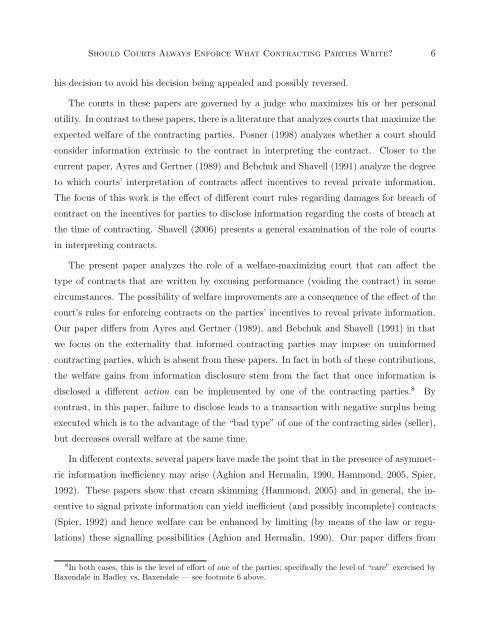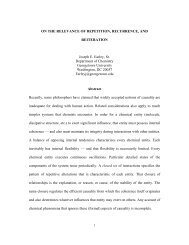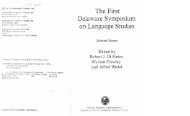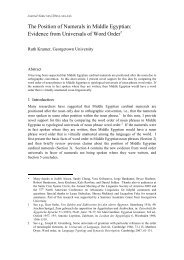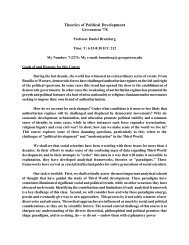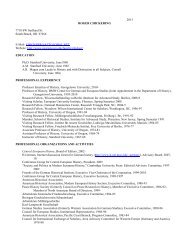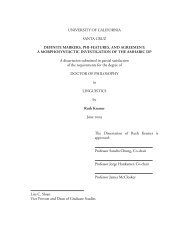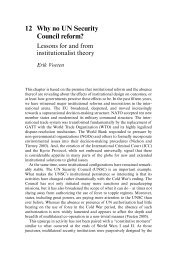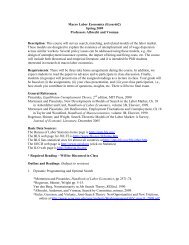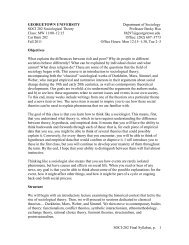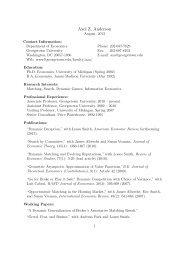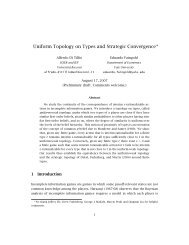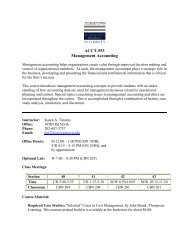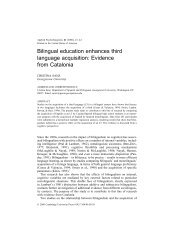PDF File - Georgetown University
PDF File - Georgetown University
PDF File - Georgetown University
You also want an ePaper? Increase the reach of your titles
YUMPU automatically turns print PDFs into web optimized ePapers that Google loves.
Should Courts Always Enforce What Contracting Parties Write? 6his decision to avoid his decision being appealed and possibly reversed.The courts in these papers are governed by a judge who maximizes his or her personalutility. In contrast to these papers, there is a literature that analyzes courts that maximize theexpected welfare of the contracting parties. Posner (1998) analyzes whether a court shouldconsider information extrinsic to the contract in interpreting the contract. Closer to thecurrent paper, Ayres and Gertner (1989) and Bebchuk and Shavell (1991) analyze the degreeto which courts’ interpretation of contracts affect incentives to reveal private information.The focus of this work is the effect of different court rules regarding damages for breach ofcontract on the incentives for parties to disclose information regarding the costs of breach atthe time of contracting. Shavell (2006) presents a general examination of the role of courtsin interpreting contracts.The present paper analyzes the role of a welfare-maximizing court that can affect thetype of contracts that are written by excusing performance (voiding the contract) in somecircumstances. The possibility of welfare improvements are a consequence of the effect of thecourt’s rules for enforcing contracts on the parties’ incentives to reveal private information.Our paper differs from Ayres and Gertner (1989), and Bebchuk and Shavell (1991) in thatwe focus on the externality that informed contracting parties may impose on uninformedcontracting parties, which is absent from these papers. In fact in both of these contributions,the welfare gains from information disclosure stem from the fact that once information isdisclosed a different action can be implemented by one of the contracting parties. 8 Bycontrast, in this paper, failure to disclose leads to a transaction with negative surplus beingexecuted which is to the advantage of the “bad type” of one of the contracting sides (seller),but decreases overall welfare at the same time.In different contexts, several papers have made the point that in the presence of asymmetricinformation inefficiency may arise (Aghion and Hermalin, 1990, Hammond, 2005, Spier,1992). These papers show that cream skimming (Hammond, 2005) and in general, the incentiveto signal private information can yield inefficient (and possibly incomplete) contracts(Spier, 1992) and hence welfare can be enhanced by limiting (by means of the law or regulations)these signalling possibilities (Aghion and Hermalin, 1990). Our paper differs from8 In both cases, this is the level of effort of one of the parties; specifically the level of “care” exercised byBaxendale in Hadley vs. Baxendale — see footnote 6 above.


